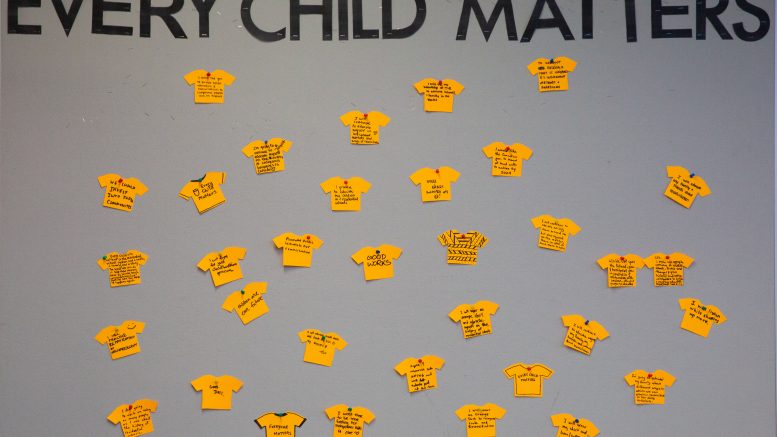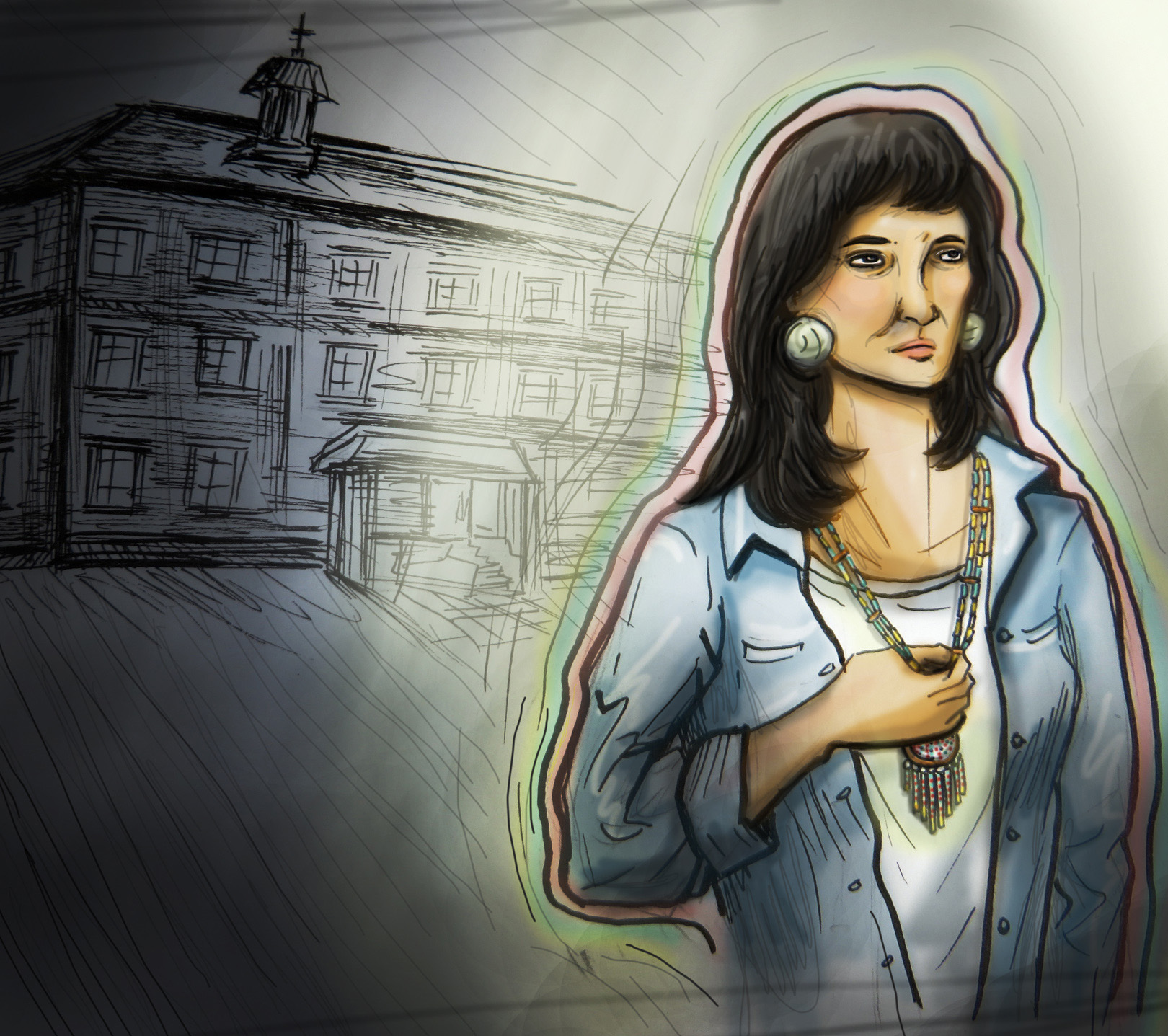In honour of the second annual National Day for Truth and Reconciliation, students and faculty members alike hosted and took part in a number of different events.
UMSU Indigenous students community representative and University of Manitoba Indigenous Students’ Association (UMISA) communications co-ordinator Ishkode Catcheway said that UMISA chose not to schedule anything on Sept. 30 in order to avoid interfering with other groups’ events.
UMISA hosted a couple collaborative events throughout the week. Orange Shirt pins were created at a beading workshop held last Tuesday night, and an Orange Shirt Day mural in Migizii Agamik was also created.
Catcheway also highlighted UMSU’s Truth and Reconciliation panel on Sept. 29, which featured Order of Canada appointee John Morrisseau, former UMISA vice-president Julie Albert and writer and television host Ivana Yellowback. The speakers shared their perspectives on truth and reconciliation for the Indigenous community.
Catcheway was comforted to see so many events for the National Day for Truth and Reconciliation hosted on campus. She said that for many Indigenous students, it is difficult to come from their communities to a colonial space like the U of M.
Catcheway also pointed out that it is important for non-Indigenous students to take part in these events so that they learn about Indigenous history and understand their positionality in present-day Winnipeg.
“For me, it really makes my heart full,” she said.“It’s just a nice way to heal your spirit.”
Other groups also held events on campus.
On Sept. 27, U of M student researcher Kathleen McKenzie and scholar Sean Carleton presented their research on Dr. Peter Bryce’s 1907 Report on Residential Schools.
The next day, Indigenous Engagement and Communications hosted a virtual sharing circle with Elder Carl Stone, and later had an in-person beading session in Migizii Agamik.
The Nursing Students’ Association and the college of nursing held their annual Orange Shirt Day walk Sept. 29. Participants walked from the Helen Glass Centre for Nursing to the National Centre for Truth and Reconciliation, where a ceremony took place.
Catcheway said students who may be interested in future Indigenous cultural events can keep updated by checking out the UMISA Instagram account (@umisacouncil).
Instructor in the U of M department of Indigenous studies Shauna Mulligan said that the National Day for Truth and Reconciliation brings up a medley of emotions. She thinks of residential school survivors that are close to her, as well as the hundreds of Indigenous children found in unmarked graves.
According to Mulligan, the National Day for Truth and Reconciliation is inspired by the story of Phyllis Webstad, a young Indigenous girl who arrived at a residential school wearing a new orange shirt. Webstad’s shirt was immediately taken from her, an act that Mulligan said illustrated the stripping away of Indigenous culture by the residential school system.
“It was one of those things that people kind of gravitated towards as that symbol of ‘this is what has happened,’” she said.
Mulligan explained that as a result, Orange Shirt Day was created “to increase the visibility of Indigenous survivors of residential schools and to continue that discussion.”
Mulligan believes that there is still much more work to be done. She said that more representation and supports for Indigenous students and staff should be available across the university, something outlined in the 2015 to 2020 University of Manitoba Strategic Plan.
Mulligan said it is also important to recognize the cultural elements of students within policies and course structures.
She emphasized the importance of continuing to have conversations about residential schools and colonial histories, not matter how uncomfortable they may be.
For Mulligan, it is imperative to better understand Indigenous people’s suffering in the past and present, so that all people living in Canada can move forward together toward a better future.
“Be open, be willing, because people are going to hear stuff they don’t want to hear, especially from survivors who may have a lot of sadness, a lot of guilt, a lot of trauma,” she said.
“It is healing and meaningful for the survivor to know that they are believed, but also it helps the survivor on their healing process as well. So if people, non-Indigenous peoples, want to help survivors, believe them. Acknowledge that they have gone through these experiences, and when they are reliving that trauma, be gentle, be kind.”
Mulligan highly recommends the Indigenous Student Centre as a resource. They offer spiritual, mental health and academic support.
Indigenous Student Centre
Email: (isc@umanitoba.ca)Phone: 204-474-8850
(Migizii Agamik – Bald Eagle Lodge) 114 Sidney Smith St.
Indigenous student groups:
University of Manitoba Indigenous Students’ Association
Métis University Students’ Association
University of Manitoba Indigenous Commerce Students
Manitoba Indigenous Law Students’ Association
Supporting Aboriginal Graduate Enhancement (SAGE)
University of Manitoba Indigenous Concerns on the Environment





